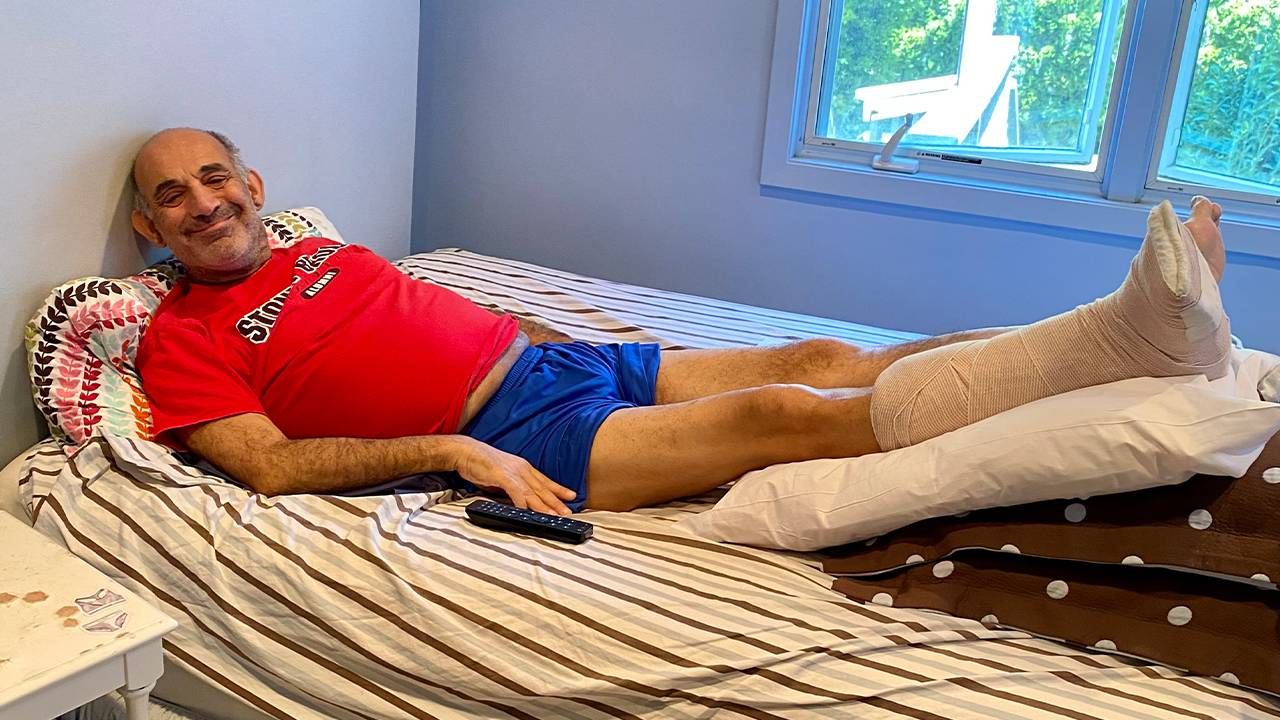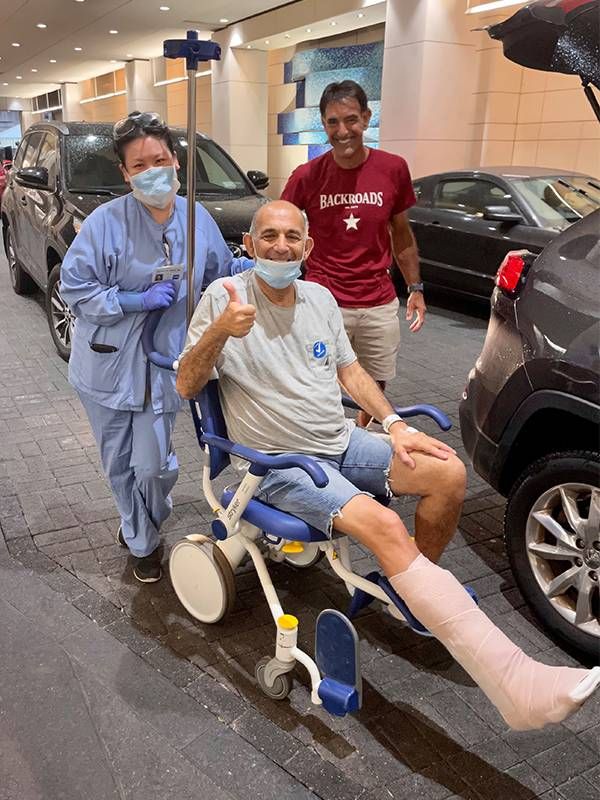
Blog post
Prioritizing Mental Health as a Universal Human Right
By: Neltada Charlemagne, DNP, APRN, PMHNP-BC, PHN, BHC
My three suggestions after being immobilized due to ankle surgery
This article first appeared on Next Avenue.
With apologies to the French poet Arthur Rimbaud, I’ll remember the summer of 2021 as my own Season in Hell. But I am pleased and proud to report that I pulled through the gloomy time. And I want to assure you that you can, too, should you be unlucky enough to have a similar experience.

Let me explain.
I had ankle surgery on June 8 and was ordered not to put any weight on that area for 12 weeks. Before the surgery, I’d been in the habit of walking about 10 miles a day around Manhattan. So, this prolonged period of inactivity figured to be jarring, to say the least.
I went through an immediate post-surgery period of self-pity, worried that I wouldn’t be able to cope with whatever challenges that the world threw at me.
Frankly, I worried I couldn’t do anything to help myself in the three months to come including its first two weeks when I’d be bedridden with my foot (very) awkwardly elevated to reduce swelling.
I went through an immediate post-surgery period of self-pity, worried that I wouldn’t be able to cope with whatever challenges that the world threw at me.
But I’ve gotten through this travail by helping myself in ways that are readily available to anyone feeling the walls closing in following surgery, a major injury or illness or a catastrophic life event like the passing of a loved one, a divorce, sudden termination from a cherished job or a business failure.
The most profound lesson I re-learned — and which has sustained me — was: stay optimistic.
Getting depressed and feeling sorry for yourself does no good. There’s no reward for plaintively looking up while bleating, “Why ME?”
It wasn’t easy, but I came to appreciate the things I still had, instead of dwelling on what I had lost in my ankle injury.
Of course, I felt a serious sense of loss of movement and the freedom it conferred. But I understood intellectually that I’d again be mobile — it would just take time. Someday, I knew, I wouldn’t have to wear my constant companion of a big protective boot (even in my sleep).

Once the two weeks in bed passed and the swelling declined, I had medical clearance to move around on my ever-present scooter. That’s when I resolved to emerge stronger than ever.
I dedicated myself to mastering my scooter, placing my injured knee on the seat and then traveling around gleefully by pushing off on my left foot.
Speaking of my left foot, Daniel Day-Lewis has nothing on mine! Oh yes, maintain a healthy sense of humor and an appreciation of the power of irony can’t hurt a recovery, either.
I also pledged to take the opportunity to learn about … well, stuff.
That began with catching up on all 62 episodes of “Breaking Bad” on Netflix. I somehow had never seen the remarkable series during its 2008-2013 run.
And I knew I had the much-heralded spinoff, “Better Call Saul,” to look forward to after plowing through “Breaking Bad.”
Still, I needed to find other ways to pass the time.
Audiobooks and podcasts proved to be godsends. My interests tend to run to popular culture, sports and politics and I’m happy to say there’s no shortage of engrossing offerings in those categories.
Family support has been an enormous help as well. I could never have gotten through this period without the kindness of my empty-nester sister Carla and brother-in-law Rob.
If you ever fretted that you took your loved ones for granted, trust me on this: you won’t feel that way anymore, if they step up when you need them.
Carla and Rob welcomed me into their home with their good company and steadfastly looked after my every need, encouraging to me to stay upbeat, stressing good hygiene and forcing healthy foods on this guy who’d always regarded Mallomars as some kind of self-styled vegetable.
Remember: your mental and physical recovery is on you.
They good-naturedly cooked for me, fetched my prescriptions from the drugstore, kept refilling my water bottle (hydration is key when you’re not exercising) and reminded me incessantly that every new day represented another step toward the finish line, when I’d be able to put pressure on my ankle and walk freely again.
My recuperation hasn’t been easy. It hasn’t always been smooth, either. That may be your experience in a recovery, too.
You may think you are helpless and defeated. But remember: your mental and physical recovery is on you. You can pull through.
To help the process, remember these three tips:
Jon Friedman, the author of Forget About Today: Bob Dylan’s Genius for (Re)Invention, Shunning the Naysayers, and Creating a Personal Revolution (2012, Penguin’s Perigree Imprint) is a lifelong journalist and a dedicated educator. Read More

By: Neltada Charlemagne, DNP, APRN, PMHNP-BC, PHN, BHC

Older adults can safeguard themselves from the physical, mental and emotional toll of unexpected medical costs.

Optum Care Network – Monarch has teamed up with Landmark to deliver in-home medical care to members with multiple chronic conditions.